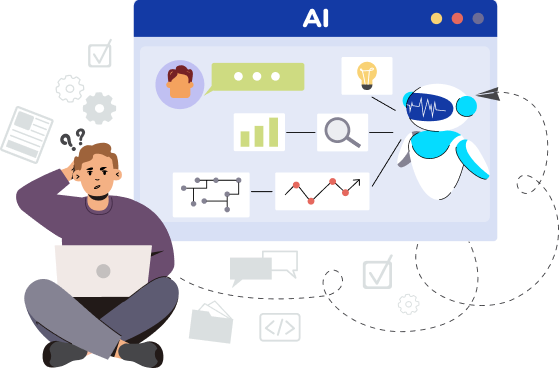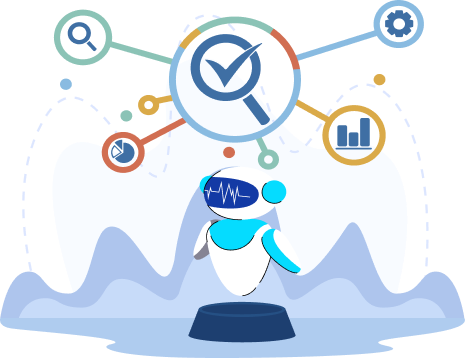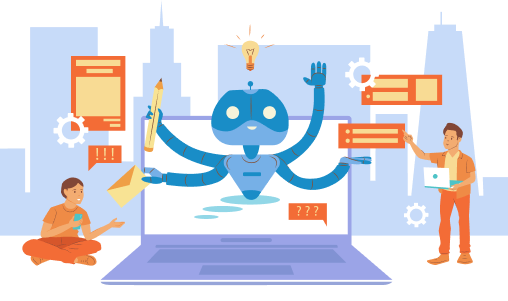GenAI attempts to provide
Stability and Efficiency to SDLC
In the ever-evolving landscape of software development, certain challenges persist regardless of the methodology employed. While the obvious tools like coding copilots will become ubiquitous & boost developer productivity. It is the more common challenges that software teams face Issues like unstable requirements, quality concerns, and team efficiency if solved can be the bigger wins. We believe the power of Generative AI (GenAI) can be the key to overcoming these challenges that have nagged generations of the software development projects.

Stability in Requirements
Requirements are notorious for never being fully base lined, leading to frequent changes and misunderstandings. Most methods struggle to maintain consistent requirements throughout the development lifecycle. We view that GenAI can be leveraged to address this challenge in the following ways:

Requirement Pattern Analysis
By analyzing historical data and identifying patterns in past projects, GenAI can predict potential changes or inconsistencies in new requirements, allowing for proactive mitigation strategies.
Automated Requirement Refinement
GenAI can offer simple frameworks and approaches by identifying ambiguities, inconsistencies, and missing information. This can be achieved through natural language processing techniques and by learning from past project data, thereby bringing stability to requirements.

Quality Assurance
Despite advancements in tools and methodologies, quality assurance remains a concern. GenAI can play a crucial role in enhancing quality at every level of the life cycle:
Predictive Quality Risk Identification
By analyzing historical data and code patterns, GenAI models can predict areas susceptible to defects, enabling proactive testing and code review efforts.
Data-Driven Defect Prevention
GenAI can analyze vast datasets to identify root causes of defects and provide data-based insights and suggestions for preventing quality loss. This can involve learning from past code changes and associated quality issues.

This approach can lead to higher-quality software with fewer defects, ultimately enhancing customer satisfaction and reducing rework.

Optimizing Team Efficiency
The balance between the volume of work and team size is often delicate. Many teams struggle with inefficiencies, such as idle time and wait times between life cycle events. GenAI can assist in:

Predictive Quality Risk Identification
By analyzing historical data and code patterns, GenAI models can predict areas susceptible to defects, enabling proactive testing and code review efforts.
Data-Driven Defect Prevention
GenAI can analyze vast datasets to identify root causes of defects and provide data-based insights and suggestions for preventing quality loss. This can involve learning from past code changes and associated quality issues.
This approach can lead to higher-quality software with fewer defects, ultimately enhancing customer satisfaction and reducing rework.
Changepond is extensively applying GenAI’s capabilities to solve these problems and looking to vastly improve overall software development lifecycle effectiveness. If you are working on these areas, we would love to discuss and share ideas to get significant improvements in your project outcomes.
